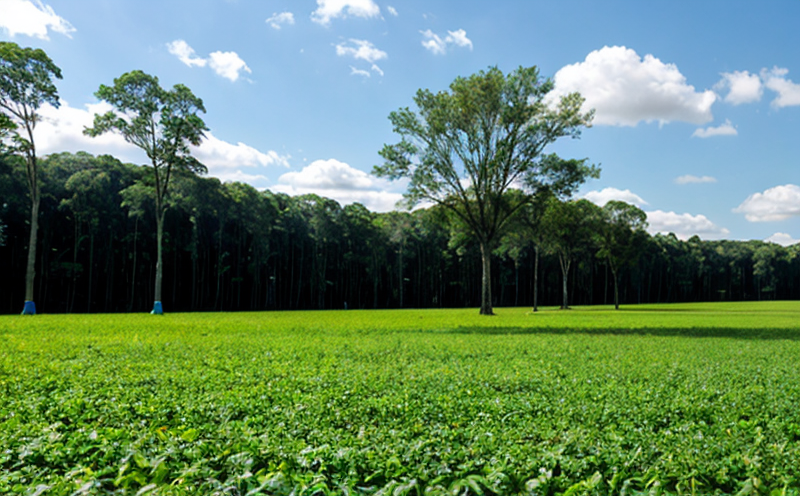Packaging Waste Reduction Testing in Consumer Products
In today’s fast-moving consumer goods (FMCG) industry, the challenge of reducing packaging waste while maintaining product integrity and safety is paramount. Packaging plays a critical role not only in protecting products but also in ensuring they meet regulatory requirements for environmental sustainability. This service focuses on testing various aspects of packaging to ensure it meets the latest standards aimed at minimizing waste without compromising consumer safety or product quality.
Consumer goods companies are increasingly under pressure from governments, consumers, and stakeholders to adopt more sustainable practices. Packaging waste reduction is a key focus area as it directly impacts the environmental footprint of products. By optimizing packaging design, materials selection, and production processes, manufacturers can significantly reduce their carbon footprint while ensuring compliance with international standards.
The testing process involves several steps, including material evaluation, weight analysis, dimensional measurement, and mechanical strength tests. These tests help identify areas where improvements can be made to achieve optimal waste reduction without affecting the functionality or safety of the packaging. Compliance officers and R&D engineers often collaborate closely during this phase to ensure that any changes proposed are both effective and legally sound.
One of the primary goals of this service is to provide actionable insights that enable businesses to make informed decisions about their packaging strategies. Through rigorous testing, we help our clients understand how different materials and designs perform under various conditions, ultimately leading to more sustainable practices within the supply chain.
Another important aspect of this service is its alignment with broader sustainability initiatives such as circular economy principles and zero waste goals. By leveraging advanced analytical tools and methodologies, our team ensures that every test conducted contributes towards achieving these ambitious objectives. This approach not only supports individual companies but also fosters a culture of responsibility across industries.
To sum up, packaging waste reduction testing in consumer products is crucial for driving innovation while ensuring compliance with relevant regulations. It provides valuable data points that can guide decision-making processes related to material selection, design modifications, and process improvements. Ultimately, this service plays an essential role in contributing to a greener future by promoting responsible consumption patterns.
Why It Matters
The importance of reducing packaging waste cannot be overstated given the growing awareness regarding environmental impacts. According to recent studies, approximately 13% of global municipal solid waste is attributed to discarded packaging materials alone (UNEP Report). Such figures underscore the need for proactive measures aimed at minimizing this contribution.
- Environmental Impact: Reducing packaging waste helps mitigate issues related to landfills and incineration, both of which pose significant risks to ecosystems. Properly managed recycling initiatives can further enhance sustainability efforts by ensuring that valuable resources are reused rather than discarded.
- Economic Benefits: Companies benefit economically from adopting sustainable practices early on as they reduce costs associated with raw material procurement, disposal fees, and potential fines for non-compliance.
- Consumer Expectations: Increasingly environmentally conscious consumers prefer brands that demonstrate a commitment to reducing packaging waste. This preference translates into increased sales opportunities for those who lead the way in this regard.
Incorporating sustainable practices early in product development cycles ensures long-term viability and enhances brand reputation among eco-conscious customers. It also sets a precedent for future innovations aimed at further minimizing environmental footprints throughout entire value chains.
Applied Standards
The testing procedures followed herein adhere to internationally recognized standards designed specifically for evaluating packaging waste reduction in consumer products. These include but are not limited to:
- ASTM D6868-14: Method for Determining the Recyclability of Packaging Materials.
- ISO 14025:2006: Environmental labels and declarations – General principles for the life cycle assessment (LCA).
- EN 379-2: Requirements for packaging recovery systems - Part 2: Packaging waste.
By adhering to these guidelines, our testing process ensures consistency and accuracy across different materials and applications. This approach allows us to provide reliable data that can be used by various stakeholders including manufacturers, regulators, and end users alike.





